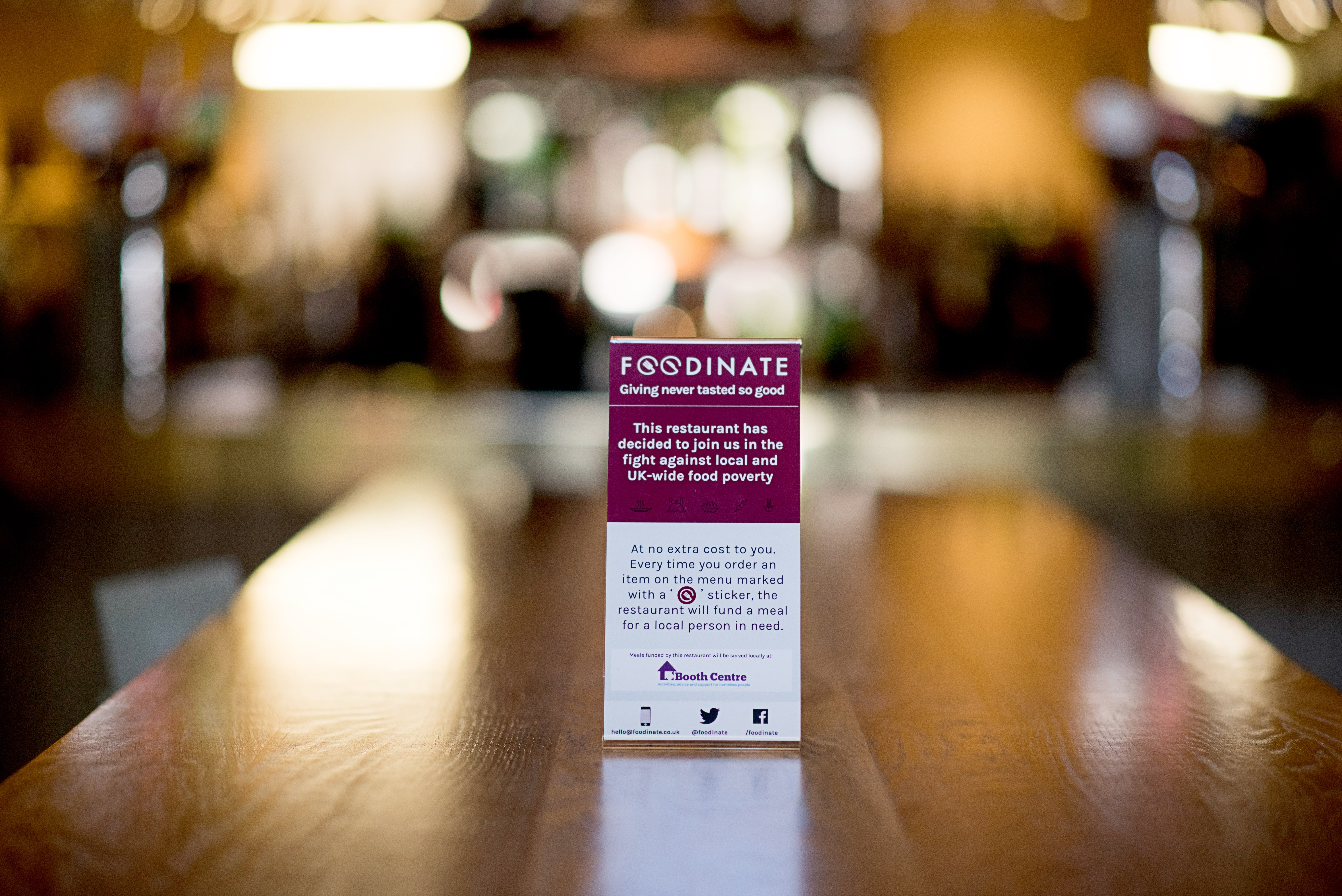
Earlier this year, Stevenson gave us the lowdown on Foodinate’s journey from pilot scheme to partnering with restaurants and events venues across 12 UK cities. Having already smashed the target she spoke about in February – to donate 100,000 meals for local people in need via the initiative by the end of the year – Stevenson is back to discuss the new Business Champions Club (BCC) and where Foodinate goes next.
What is the Business Champions Club? Is it only for restaurants or can other businesses get involved?
Throughout the last three years the success of Foodinate has attracted businesses other than those who work in the restaurant or events industries who cannot sign up to the ‘eat a meal, give a meal’ model. The Business Champions Club is a membership club which businesses sign up to. It has three tiers, bronze, silver and platinum, with each tier providing a certain number of meals to people in the community. The advantage of the BCC is that membership is open to all whether you are a supplier, a manufacturer or any other business for that matter – head to foodinate.co.uk/champions to find out more.
Why is Foodinate appealing to businesses?
Foodinate is so attractive to businesses because not only does it mean they can make a real positive difference to their local communities but it aligns with many of their business objectives. For restaurants, the ‘eat a meal give a meal’ model means you do not need to add a charge on to the end of the bill so you can avoid putting customers on the spot. This avoids the potentially awkward situation, for both the customer and waiter, when one asks for a donation to be taken off a bill. Also, the Foodinate model does not act as a disincentive for tipping unlike other charitable schemes which may make customers feel like they have paid enough due to the addition of the donation.
Can responsible food initiatives like Foodinate help businesses from a marketing standpoint?
We have found that when an item on a menu is marked with Foodinate that particular item’s sales will increase on average by 22%. Moreover, we have found that Foodinate encourages guests to share what they eat on social media. For events, venues will become “fully Foodinated”, meaning for every person attending an event a meal will go to someone in need in the same community. This provides an excellent USP to our partners who can use it to attract new clients.
What’s next for Foodinate?
In the future, we look to expand our partners to include more national brands and franchises as that is where the scale is to make the biggest impact. On the event side, we are looking at applying the model we have with medium-sized venues and applying it to bigger ones such as football stadiums and music festivals. We also want to grow the types of impact we have. We are all about using food as a tool for change.
Have you encountered any examples of food acting as a vehicle for change?
We are using food as an incentive to take people off the streets and bring them in so they get other types of support. Even now we see that when people come and get a meal with us 45% will go on to take part in other activities like CV writing classes, addiction therapy or art therapy. Astonishingly, 25% of those who receive a meal have found a job or received a national qualification or training. Consequently, in the future we would like to set up some form of formal training or an apprenticeship scheme.
Ryan Dornan
